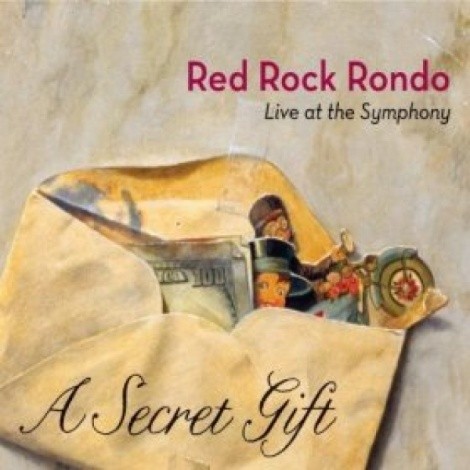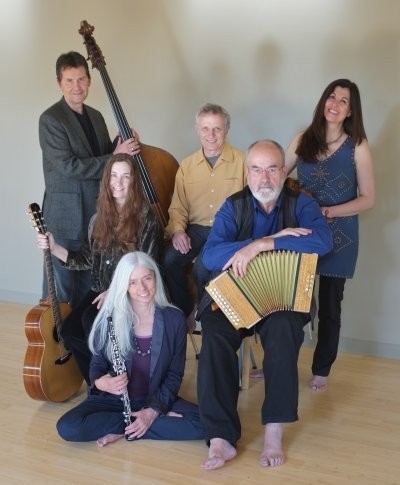Buzz Blog

Gup, a journalist, was given a trunk filled with Great Depression-era letters written to his grandfather as responses to a newspaper ad, placed before Christmas -- an offer to give a small sum anonymously to those in need. Bimstein used some of these stories for a song cycle, which was performed by his band Red Rock Rondo, backed by the Salt Lake Symphony, under the direction of Robert Baldwin, and the 165-voice West Jordan High School Concert Choir, directed by Kelly DeHaan, Dec. 2011 at Libby Gardner Hall. The concert was recorded, and Red Rock Rondo, Live at the Symphony: A Secret Gift will be released Saturday, Sept. 15 at Rose Wagner Performing Arts Center (138 W. 100 South, 7:30 p.m., $18).

Red Rock Rondo is:
Phillip Bimstein: composer, vocals, piano, guitar
Kate MacLeod: guitar, violin, vocals |
Hal Cannon: guitar, harmonica, banjo, mandolin, vocals
Harold Carr: bass, vocals
Flavia Cerviño-Wood: violin, vocals
Charlotte Bell: oboe, English horn, vocals
Phillip Bimstein writes about four songs from A Secret Gift:
“Work Sleep Love”:
“This song is based on the letter from Edith M. Saunders, who was out of work and had trouble paying her rent. As a single woman, she bemoaned the fact that it was harder for women to keep a job at that time as the employers often let the women go first, assuming that they had husbands to take care of them. The title refers to a quote from a writer of popular mystery novels of that time, who wrote, “A little work, a little sleep, a little love and it’s all over.” Kate MacLeod has a deep understanding of the plight of women, and expresses that well in the way she sings this song.”
“Dandelions”:
“During the Depression, a lot of folks ate dandelion greens because they could gather their own and that’s all they could afford. The only work they could find would be picking cherries for just a share of the crop. In the words of one of the letter writers, “Not much money in it.” The irony is that dandelions are really good for you! Hal Cannon sings this song, and he’s got such a great voice and feel for this kind of old-timey song. Everyone takes a great solo—Kate MacLeod and Flavia Cervino-Wood on dueling violins, Charlotte Bell on oboe, Hal on slide guitar, and Harold Carr always brings the house down on his skiffling bass.”
“The Last Marathon Dance”:
“Marathon dance contests were very popular during the Depression. They were entertaining but had a dark side, as the contestants were usually desperate. But the public’s eyes grew accustomed to this sight of human suffering, This song tells the story of the last marathon dance ever held at the Moonlight Ballroom near Canton, Ohio. The ordeal went on for 144 days—a world record. In the end, 3 couples were left standing. As soon as they were declared winners they all collapsed from exhaustion. 1st place went to Bob “Popeye” Everhard and his partner, Betty Lee Doria. Our recording of this song includes the Salt Lake Symphony and the 165-voice West Jordan High School Concert Choir.”
“Little Joe”:
“As a 6-year-old boy, little Joe Richards worked full-time in the mines, carrying tools and fetching water. He never went to school or learned to write. Yet Joe always took whatever work he could find, and he was able to build his own house and provide for his family. This song celebrates the strong, self-reliant character of those, like Joe, who survive hard economic times. I sing, Charlotte plays a lovely oboe interlude, and Flavia brings it home on a fiery violin solo.”